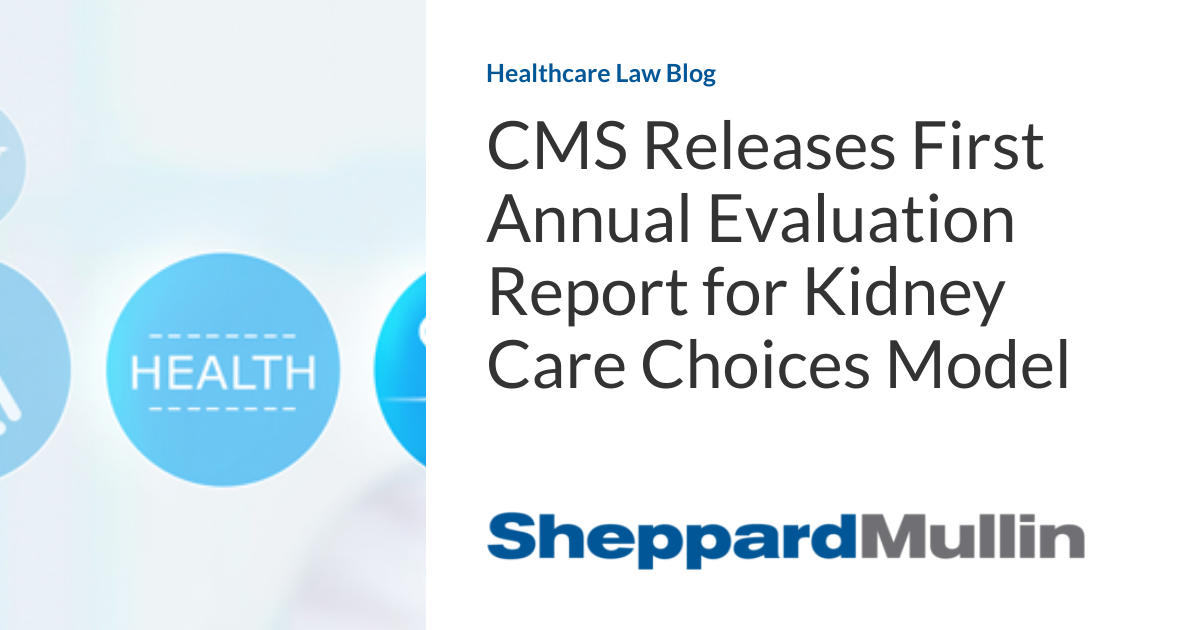Health insurance
Don’t Be Too Alarmed by the New SCOTUS Antibody Ruling
[ad_1]
Amgen v. Sanofi is a crucial case, nevertheless it received’t remodel patent legislation by itself.
By Timothy Bonis
Final April, the Supreme Courtroom dominated in Amgen v. Sanofi, a intently watched patent case the place the justices upheld the invalidation of two monoclonal antibody patents for lack of enablement. The ruling has attracted important curiosity for 2 causes.
First, Amgen concerned genus claims in organic and chemical fields, which some consultants consider the Federal Circuit has made unduly onerous to acquire. This viewpoint, most prominently expressed by Mark Lemley, Sean Seymore, and Dmitry Karshtedt in The Demise of The Genus Declare (2021), knowledgeable a lot of the talk about Amgen, though it has been challenged by students like Christopher Holman.
Second, Amgen handled monoclonal antibody patents, which now signify a number of the most precious mental property. (The world market for monoclonals in 2022 was $210B.) Furthermore, the scope of antibody patent claims has been narrowed markedly by heightened requirements for enablement and written description launched over the previous twenty years; antibody inventors as soon as acquired broad safety by means of practical claims, however the Patent and Trademark Workplace (PTO) has raised its necessities, partially in response to repeated invalidations of antibody genus claims on the Federal Circuit (see Chiron v. Genentech, 2004, Centocor v. Abbott, 2011, and AbbVie v. Janssen, 2014).
The choice in Amgen continues the pattern of narrowing antibody patents and the perceived pattern of limiting genus claims. Thus, how impactful Amgen will likely be by itself stays unsure. Does it add new constraints to the patentability of antibodies, small molecules, and chemical compounds, or does it merely recapitulate the Federal Circuit’s earlier rulings? This put up evaluations that debate. Half I examines how students and attorneys have reacted to Amgen, specializing in whether or not they suppose the case can have a authorized and sensible influence. Half II synthesizes these views, arguing that Amgen’s direct influence will likely be restricted. A companion piece summarizing the ruling’s significance for the business and innovation will comply with.
A lot of the talk about Amgen surrounds how the courts utilized the doctrine of “full scope” enablement, which requires {that a} patentee allow an individual having affordable ability within the artwork (a “PHOSITA”) to make and use each embodiment of their claimed genus. The Federal Circuit demanded full scope enablement in organic and chemical fields earlier than Amgen (see Wyeth & Cordis Corp. v. Abbott Labs, 2013, and Idenix v. Gilead, 2019), however some consultants consider Amgen expanded the requirement.
Legal professional Gene Quinn gives essentially the most dramatic interpretation, calling the Supreme Courtroom’s embrace of full scope enablement in Amgen “a cataclysmic shift within the legislation of enablement,” not only for antibodies however for “the life sciences neighborhood and past.” Quinn focuses on the details of the patent quite than the latest precedent for full scope enablement. He believes that “there may be…no query that Amgen invented the total scope of what they claimed,” accepts Amgen’s estimate of its genus’s dimension (300–500 embodiments), and calls the disclosure “extraordinary.” As a result of Quinn thinks Amgen’s disclosure was so full, he argues that post-Amgen, the legislation should implicitly require patentees to elucidate every claimed embodiment, an excessive and novel interpretation of the total scope customary.
Of their 2023 article The Antibody Patent Paradox, Jake Sherkow and Mark Lemley (an writer of Demise) name Amgen a “revolution,” however they don’t forecast as far-reaching an influence as Gene Quinn. Though they argue that full scope enablement is a comparatively novel requirement, they acknowledge that it had been imposed earlier than Amgen, together with to antibodies (see p. 1030–31). Nonetheless, they do suppose Amgen represents a shift; they consider that it’ll prolong the Federal Circuit’s long-term “reorientation” of the Wands elements for undue experimentation by requiring patentees to elucidate methods to distinguish working embodiments from nonworking embodiments and make absolutely the dimension of a genus a extra essential consider declare viability (see p. 1034). Additionally they emphasize how the Amgen panel’s interpretation of full scope enablement will restrict practical claims, particularly in antibody patents: “Put up-Amgen…no sturdy specification may presumably embody all potential examples of functionally claimed antibodies.”
However, Christopher Holman has criticized the attitude that full scope enablement is a novel requirement or one which Amgen has impacted. His article Is the Chemical Genus Declare Actually “Lifeless” on the Federal Circuit? repudiates Demise and Paradox’s suggestion that the Federal Circuit has redefined “undue experimentation” for the reason that Eighties. In a weblog put up about Amgen, Holman writes that full scope enablement has “been the Federal Circuit’s interpretation of the enablement requirement [for years].” Holman disagrees with Quinn’s studying of the ruling: “A patentee just isn’t required to actually allow an individual of ability within the artwork to make and use each embodiment… I don’t suppose that something in Amgen needs to be interpreted as altering this basic understanding of the enablement requirement.”
Legal professional Dominic Frisina has expressed even stronger criticism in direction of the notion that the total scope enablement is new or one thing Amgen has modified:
The “new” rule adopted by the Supreme Courtroom in Amgen is identical “full scope” requirement we have now lived with for many years below Federal Circuit legislation. That’s, patentees should allow the total scope of their claimed invention, or else the claims are invalid.
Frisina agrees with the courts. Justice Gorsuch’s opinion labels “[the requirement that] “the specification should allow the total scope of the invention as outlined by its claims” a “easy statutory command.” When Amgen requested for an en banc rehearing on the Federal Circuit, Choose Lourie wrote an uncommon concurrence to the courtroom’s denial of the rehearing, saying Amgen didn’t change the legislation. Presumably responding to Demise, the concurrence calls “[those] bemoaning the so-called demise of generic claims off base.”
What’s an inexpensive synthesis of those completely different views? Amgen’s significance has usually been overstated. It didn’t introduce unprecedented enablement rules, and, in follow, biotechnology genus claims, together with antibody claims, have been already restricted.
The primary situation is the disclosure itself. Gene Quinn argues that Amgen’s disclosure was slim and reproducible, however his fact-finding is flawed. He trusts Amgen at face worth, accepting that the genus numbered 300–500 and that “expert artisans following the patent’s ‘roadmap’ [which is how Amgen tried to enable its patent] ‘would make certain to make all’ the antibodies throughout the claims” (he quotes Amgen’s skilled). He calls Amgen’s testimony “uncontroverted.” This interpretation seems incomplete. Amgen’s counsel admitted the genus ranged in “the potential thousands and thousands” throughout oral arguments. Moreover, the courts heard consultants from each side, and the district courtroom particularly concluded that the roadmap “doesn’t present important steerage or path.” The courts might have been fallacious in regards to the details, however even when that have been the case, they nonetheless invalidated a patent with a declare that appeared huge and a disclosure that appeared restricted.
The second query is whether or not the way in which courts dominated on the disclosure was new to Amgen. In all probability not. As most consultants acknowledge, full scope enablement has sturdy pre-Amgen precedent. Justice Gorsuch’s opinion invokes historic rulings like Morse (a dispute over the telegraph patent), however instances like Wyeth (2011) provide latest and unambiguous examples of Amgen-style full scope enablement, albeit for small molecules, not antibodies. Much more instantly, in MorphoSys v. Janssen Biotech (2019), an antibody patent invalidation from the identical district as Amgen, the district courtroom not solely embraced full scope enablement (see § B pt. 2), but additionally dealt with practical claims and undue experimentation equally to the courts in Amgen, all with out counting on Amgen. The circumstances have been related, though MorphoSys provided fewer working examples than Amgen. The district courtroom highlighted that the practical limitations in MorphoSys’s patent led to its overbreadth; the opinion confused that, although some non-disclosed antibodies have been reproducible, “the place, as right here, the claims recite practical limitations in an unpredictable discipline, the specification should do greater than place [a PHOSITA] at ‘a place to begin.’” This stance resembles the Federal Circuit in Amgen: “This invention is in unpredictable discipline of science with respect to satisfying the total scope of the practical limitations…the binding [i.e., functional] limitation is itself sufficient right here to require undue experimentation.”
The opposite purpose Amgen is not going to remodel the patentability of latest biotechnologies, together with antibodies, is that the scope of antibody and different biotechnology genus claims was already slim. First, taking a look at chemical and organic patents basically, it’s onerous to argue that Amgen requires something extra stringent than non-antibody pharmaceutical instances from the 2010s. Wyeth and Idenix demand full scope enablement, and structural particulars have been obligatory in life science genus claims (besides antibody claims) for the reason that Nineteen Nineties. Certainly, in Demise, which was written earlier than Amgen, Lemley concludes that “any genus declare…within the life sciences and chemical fields” has been “name[ed] into query.” In fact, Lemley is likely to be fallacious (and Holman is likely to be proper) about whether or not that’s true, however the level is the necessities for patenting chemical compounds and small molecules had already reached or surpassed Amgen’s requirements earlier than Amgen.
The opposite chance is that Amgen will solely have an effect on the patentability of antibodies, which lengthy acquired extra lenient remedy than different biotechnologies. This appears to be Lemley and Sherkow’s place in Paradox, the place they characterize Amgen as “revolutionary” (versus “confirmatory,” as they did in a extra basic amicus transient submitted to the Supreme Courtroom) however a revolution for “practical antibody patents.” The issue with this interpretation is that the Federal Circuit narrowed antibody claims so considerably earlier than Amgen. Think about how a lot the holdings in AbbVie v. Janssen (2014) prohibit antibody genus claims; AbbVie disclosed twelve occasions extra antibody sequences than Amgen, but nonetheless misplaced. Even in 2012, one evaluate concluded that practical antibody claims “depend on tenuous Federal Circuit precedent.”
The empirical actuality is that practical antibody claims weren’t that patentable earlier than Amgen. A research by Sean Tu and Christopher Holman revealed that examiners more and more threw out antibody claims for § 112 failures through the lifespan of PTO’s “antibody exception.” (The “antibody exception” allowed practical claims for antibodies however no different biotechnologies. It was formally repealed in 2018.) Based on their analysis, the exception was “largely ignored” by 2008. Drafting practices modified to accommodate this shift; 70% of authorized antibody patents used practical limitations (the antigen or binding web site) within the early 2000s, however that quantity fell to nearly zero by 2011, lengthy earlier than Amgen. In sum, examiners and the Federal Circuit have been hostile to broad antibody patents for too lengthy for Amgen to remodel the patentability of monoclonal antibodies.
Associated
[ad_2]
#Dont #Alarmed #SCOTUS #Antibody #Ruling
Supply hyperlink









